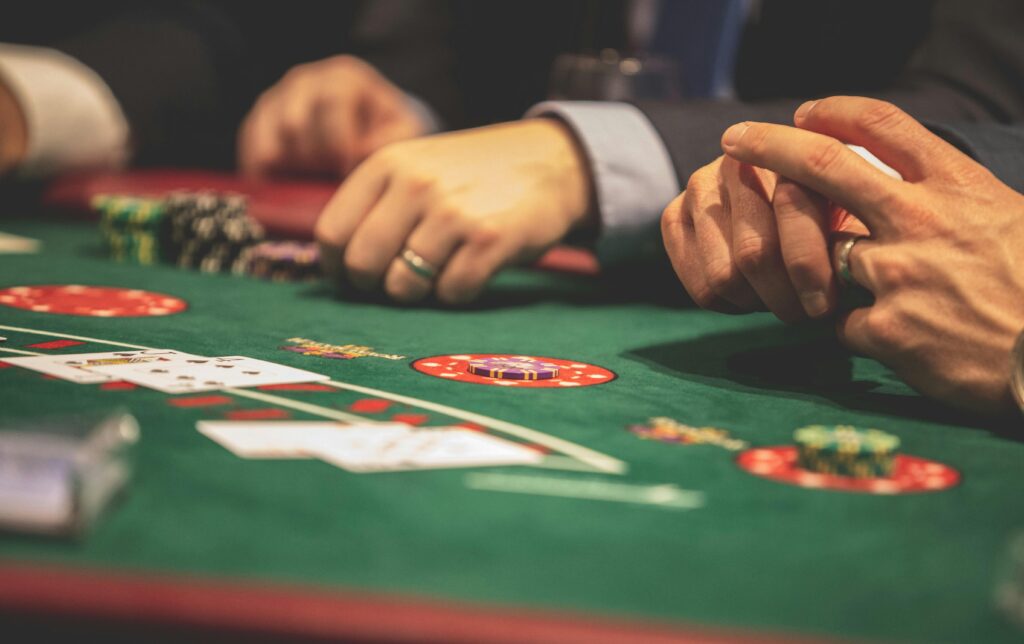How to Overcome Gambling Addiction
Gambling addiction, also known as compulsive gambling or gambling disorder, is a serious issue that affects millions of people worldwide.
It’s characterized by an uncontrollable urge to gamble despite negative consequences. Overcoming gambling addiction is challenging, but with the right strategies, support, and commitment, it is possible. In this article, we will explore effective ways to overcome gambling addiction and reclaim control of your life.
Understanding Gambling Addiction
Gambling addiction is not just a habit; it’s a psychological disorder that can have severe impacts on an individual’s financial stability, relationships, and mental health. Recognizing the signs of gambling addiction is the first step toward recovery. Common symptoms include:
– An overwhelming need to gamble with increasing amounts of money.
– Restlessness or irritability when attempting to cut down or stop gambling.
– Frequent unsuccessful attempts to control or stop gambling.
– Gambling to escape problems or relieve feelings of helplessness, guilt, anxiety, or depression.
– Lying to conceal the extent of involvement with gambling.
– Jeopardizing or losing significant relationships, jobs, or educational/career opportunities because of gambling.
Admitting the Problem
The road to recovery begins with admitting there is a problem. Denial is a common barrier to overcoming gambling addiction.
Accepting that gambling is causing harm to your life and those around you is a critical step. It takes courage to acknowledge this issue, but it’s the foundation upon which recovery is built.
Seek Professional Help
Professional help is often necessary to overcome gambling addiction. There are various options available, including:
Counseling and Therapy
Cognitive-behavioral therapy (CBT) is highly effective in treating gambling addiction.
CBT helps individuals understand t feelings that drive their gambling behavior and teaches them how to replace these unhealthy patterns with healthier ones.
Support Groups
Support groups such as Gamblers Anonymous (GA) provide a community of individuals who understand what you’re going through.
These groups offer a platform to share experiences, receive encouragement, and gain valuable insights into overcoming gambling addiction.
Medication
In some cases, medications may be prescribed to help manage symptoms of gambling addiction, such as depression or anxiety.
While medication alone is not a cure, it can be a helpful component of a comprehensive treatment plan.
Develop Healthy Habits
Replacing the time and energy spent on gambling with healthier activities is crucial for recovery. Consider the following strategies:
Find New Hobbies
Engage in activities that bring joy and fulfillment. Whether it’s exercising, reading, painting, or playing a musical instrument, finding new hobbies can provide a sense of accomplishment and distract from the urge to gamble.
Exercise Regularly
Physical activity can significantly improve mental health by reducing stress and promoting a positive mood. Regular exercise can help manage the emotional triggers that often lead to gambling.
Read also: Anxiety Revealed: Unraveling the Secrets Behind Its Triggers
Practice Mindfulness and Relaxation Techniques
Mindfulness and relaxation techniques, such as meditation and deep breathing exercises, can help manage stress and reduce the urge to gamble. These practices can improve emotional regulation and increase self-awareness.
Set Financial Boundaries
Financial problems are a significant consequence of gambling addiction. Setting strict financial boundaries can help manage and prevent further financial damage.
Control Access to Money
Consider handing over financial control to a trusted friend or family member. This person can help you manage your finances and ensure that you are not tempted to gamble.
Close Online Gambling Accounts
Closing online gambling accounts and blocking gambling websites can reduce the temptation to gamble. Utilize software tools that restrict access to gambling sites.
Budgeting and Debt Management
Create a budget to manage your expenses and stick to it. Seek professional help for debt management if necessary. Financial counseling can provide strategies to pay off debts and regain financial stability.
Build a Support System
Having a strong support system is crucial in overcoming gambling addiction. Surround yourself with people who support your recovery and understand the challenges you face.
Communicate Openly
Be honest with your loved ones about your struggle with gambling addiction. Open communication can strengthen relationships and provide the emotional support needed during recovery.
Avoid High-Risk Situations
Stay away from environments and situations that may trigger the urge to gamble. This includes avoiding friends or acquaintances who gamble and finding alternative ways to spend your time.
Focus on Long-Term Goals
Recovery from gambling addiction is a long-term process. Set realistic and achievable goals to stay motivated.
Celebrate Small Wins
Recognize and celebrate your progress, no matter how small. Each day without gambling is a victory and brings you one step closer to recovery.
Stay Patient and Persistent
Recovery is not a linear process, and setbacks may occur. Stay patient and persistent, understanding that overcoming gambling addiction takes time and effort.
Conclusion
Overcoming gambling addiction is a challenging but achievable goal. By admitting the problem, seeking professional help, developing healthy habits, setting financial boundaries, building a support system, and focusing on long-term goals, you can take control of your life and break free from the grip of gambling addiction.
Remember, recovery is a journey that requires commitment and patience. Reach out for help, stay determined, and believe in your ability to change.
Resources
If you or someone you know is struggling with gambling addiction, consider reaching out to the following resources:
Gamblers Anonymous (GA):
A fellowship of men and women who share their experience, strength, and hope with each other that they may solve their common problem and help others to recover from a gambling problem.
National Council on Problem Gambling (NCPG):
Provides information on gambling addiction and offers resources for those seeking help.
Cognitive-Behavioral Therapy (CBT) Therapists:
Search for therapists specializing in CBT for gambling addiction in your area.
Taking the first step towards recovery can be daunting, but it’s the most important one. With the right support and strategies, overcoming gambling addiction is within your reach.

